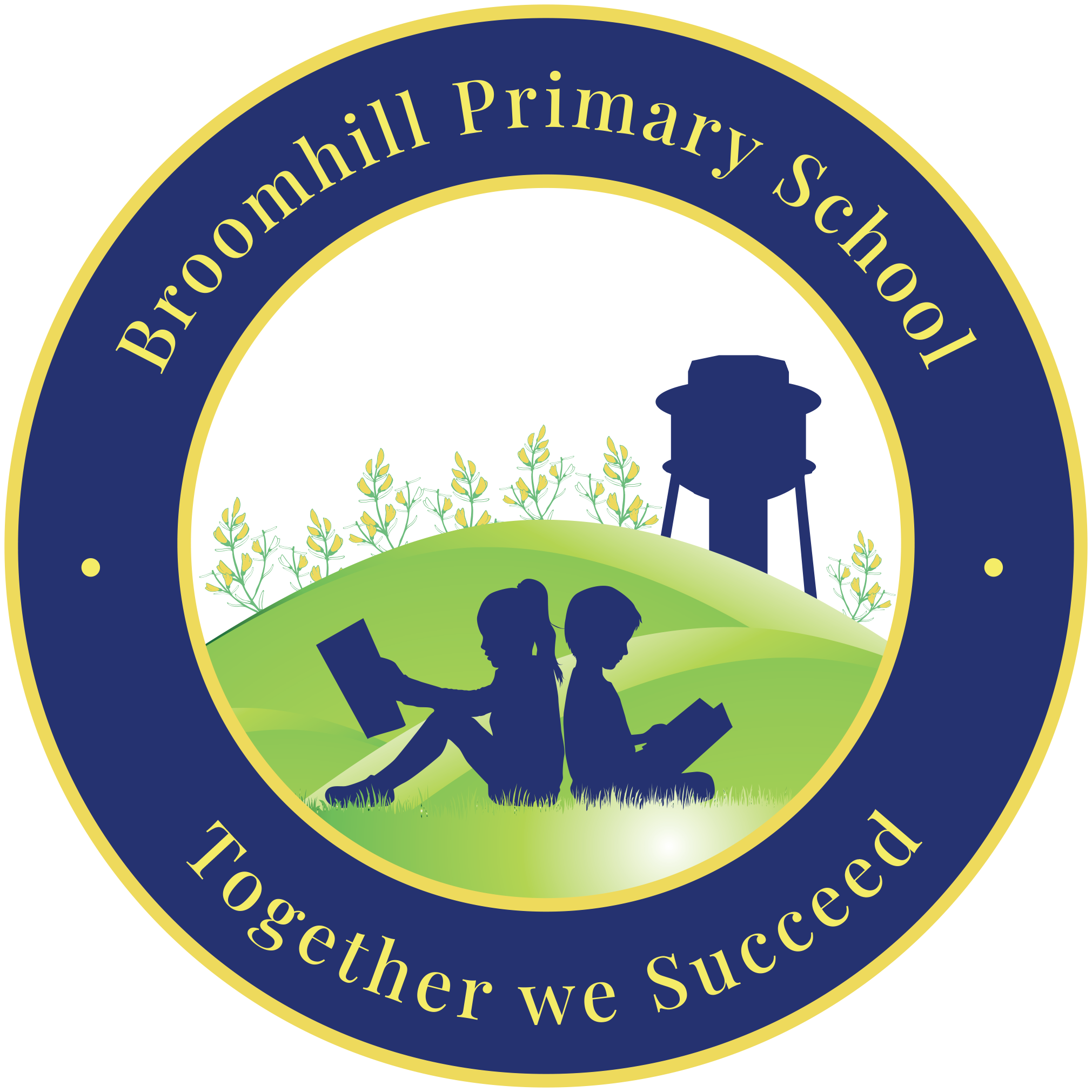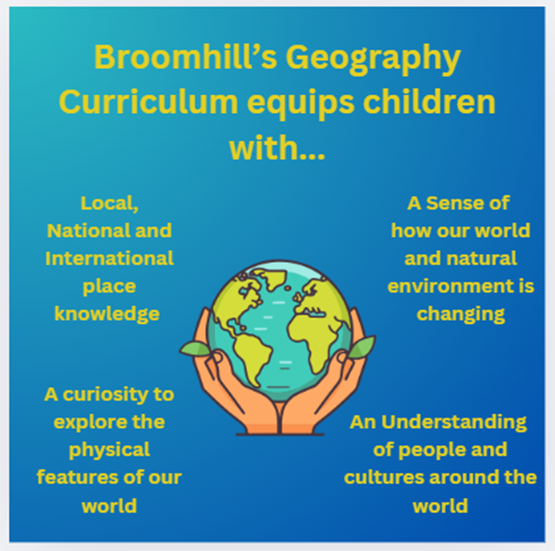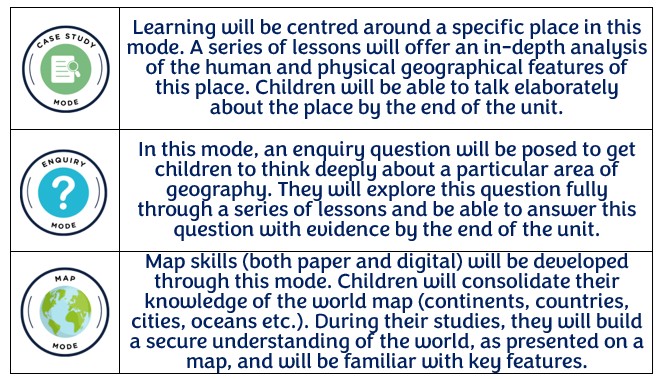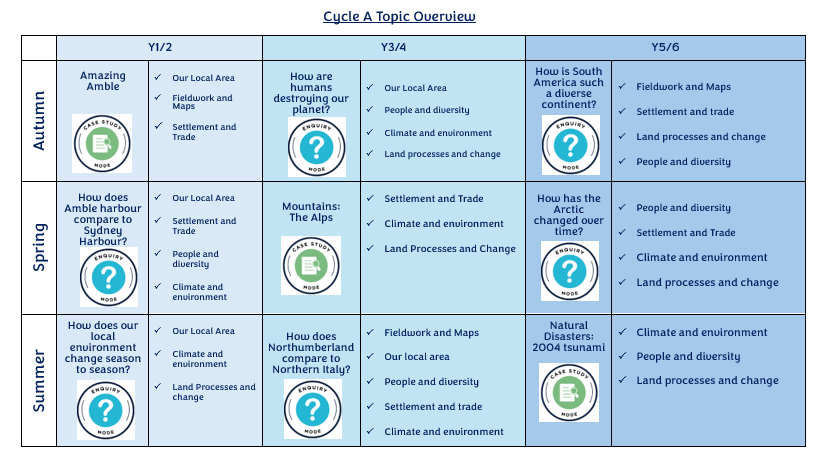Geography Leader: Mrs Anderson
What do we want our children to achieve from our Geography curriculum?
It is crucial that our children fully understand and engage with the environment around them, particularly as the natural world evolves at a rapid pace. We want our children to care about the world they live in and protect the future of their planet, therefore we aim to provide a thorough overview of what actually exists out there, but also the geographical processes, interactions and challenges that occur daily. We want our pupils to appreciate the rich diversity of people worldwide and be eager to learn more about those people. Our children will be equipped with an advanced understanding of physical and human geography and the role they play amongst these features. Our geography curriculum will develop critical thinking skills, a strong sense of citizenship and a secure knowledge of places.
How do we ensure that this happens?
The foundations of our Geography curriculum are built in EYFS, where children are encouraged to develop their "understanding the world" knowledge through carefully structured activities and building upon their free play also through high quality interactions. Children are supported to explore people, cultures and communities and develop an understanding of the natural world around them. Our youngest children often lead their own learning journey in Geography, yet our skilled staff scaffold learning with core geographical vocabulary and nurture an enquiry approach.
In Key Stages 1 and 2, our geography curriculum is taught through three modes of learning, this ensures that disciplinary knowledge is prioritised alongside the substantive knowledge.
Modes of Learning
Threads of Learning:
Our carefully selected topics are connected by threads of learning to ensure a cohesive and progressive approach to teaching and learning. They are woven throughout our Geography curriculum, so that links in learning are referred to explicitly during the children's learning journey.
The threads of learning are:
- People and Diversity
- Fieldwork and Maps
- Climate and Environment
- Our Local Area
- Land Processes and Change
- Settlement and Trade



